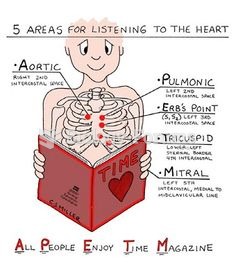|
|
|
The immune system needs 9.5 hours of sleep in total darkness to recharge completely.
By definition, when a medication is administered intravenously, its bioavailability is 100%.
Malaria was not eliminated in the United States until 1951. The term eliminated means that no new cases arise in a country for 3 years.
About one in five American adults and teenagers have had a genital herpes infection—and most of them don't know it. People with genital herpes have at least twice the risk of becoming infected with HIV if exposed to it than those people who do not have genital herpes.
Human neurons are so small that they require a microscope in order to be seen. However, some neurons can be up to 3 feet long, such as those that extend from the spinal cord to the toes.
 Apply lubricant to the entire right limb using basic sliding effleurage. Apply moderate pressure ...
Apply lubricant to the entire right limb using basic sliding effleurage. Apply moderate pressure ...
 Apply draining stroke to forearm. Hold forearm off of the table with one hand. With the other hand, ...
Apply draining stroke to forearm. Hold forearm off of the table with one hand. With the other hand, ...




